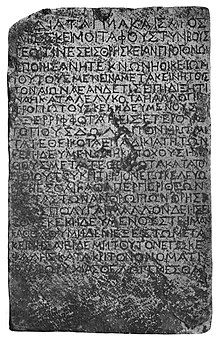“He fulfills the desire of those who fear him; he also hears their cry and saves them.” – Psalm 145:19 (ESV)“
“Charm is deceitful, and beauty is vain, but a woman who fears the Lord is to be praised. Proverbs 31:30 ESV”
Just as a lack of a healthy fear of God and his commands, not bad intentions, lay behind Eve disobeying in the Garden, so too did a surplus of fear of God lay behind the women disobeying the command of the Lord conveyed by the young man in the tomb, but the irony is the result in Mark is the opposite of the result in Genesis.
Fear of God may refer to fear itself, but also to a sense of awe, and submission to, a deity. People subscribing to popular monotheistic religions for instance, might fear Hell and divine judgment, or submit to God’s omnipotence. Proverbs 1:7 says “The fear of the Lord is the beginning of knowledge, but fools despise wisdom and instruction.” Indeed — fear is the beginning, the catalyst. Fear is the motivator. This is echoed in Psalm 111:10, which notes, “The fear of the Lord is the beginning of wisdom; all who follow his precepts have good understanding. To him belongs eternal praise.” And again, later on in Proverbs, we’re reminded, “The fear of the Lord is a fountain of life, turning a person from the snares of death” (Proverbs 14:27). In the Magnificat (Luke 1:50) Mary claims, “His mercy is from age to age to those who fear him.” The Parable of the Unjust Judge (Luke 18:1-8) finds Jesus describing the judge as one who “…neither feared God nor cared for man.”
Bible commentator Melanie Newton points out Sarah went along with Abraham’s “Tell them you’re my sister” plan because she was willing to do what he thought was needed to preserve his life. Remember that as the Holy Spirit inspired Peter to write his letter, God honored Sarah for not giving way to fear (1 Peter 3:5-6). Newton points out a major Old Testament theme is women repeatedly overcoming fear by trusting God.
Similarly, Miriam experienced that amazing exit from Egypt along with more than 2 million others. When the people were terrified, the Lord fought for them. They needed only to stop being terrified and trust Him. Through Moses’ instructions, the trembling people were able to apply faith to their fear. They confronted it and turned it over to God. Their faithful God took over and proved that He was stronger than their enemies.
The conclusion that Rahab made about the God of Israel was exactly what God wanted all of them to know (Deuteronomy 4:35). Everyone heard the same news. While most stayed in their fear, Rahab responded with faith to the revelation given. Rahab was given an opportunity to make a conscious choice for God based upon the few facts she knew about Him, and she responded with FAITH. Faith resulted in action. God’s grace to Rahab forgave her past and gave her a new future. She was given a place among the Israelites as a recognizable person because she acted on faith instead of melting into fear. She married an Israelite man and produced a son who was King David’s great grandfather, placing Rahab in the lineage of Jesus. God loved Rahab. He knew what was going on in her life. He was able to do something about it. But, God did not keep Rahab from losing the security of her home nor did He prevent her from having to go through the agony of watching the Israelites march around the city for 7 days. Remember, she didn’t know that plan. When she stepped out in faith, He met her there. She trusted Him to rescue her, and He did. God judged her by her heart (the inward woman), not by her lifestyle (the outward appearance). He not only saved her life, but He forgave her past and gave her a new future. She chose to trust Him rather than melt in fear.
The Old Testament also says God loved the two single moms and their children. He knew what was going on in their lives. He was able to do something about it. But, God did not restore their husbands back to these women nor did He prevent them from going through the agony of watching food supplies dwindle or facing threats from a creditor. His provision was not luxurious foods or easy money. During their walk, a loving God said no to some things. Yet, they chose to trust Him rather than submit to fear. And, God rewarded their faith with an outpouring of His blessing. Likewise, God may not choose to remove the threats from your life. But, in any and all situations, you can count on these truths
Regarding the ending of Mark, Rollin Grams comments that:
Some believe that Mark’s Gospel ends in irony. After keeping Jesus’ identity secretive throughout the Gospel, when the risen Jesus now tells the women to go tell his disciples to meet him in Galilee, they say nothing to anyone out of fear (Mark 16.7-8; this is the actual end of the Gospel as vv. 9-20 were a later addition trying to resolve this surprising ending). Andrew Lincoln has argued that this surprising ending may fit the context of Mark’s Gospel being written in Rome during the time of Nero’s persecution of Christians. If so, the Gospel ends as a challenge to Christians not to be silent but to witness to who Jesus is. Another way to understand this ending is that the women’s response could be understood to mean that they did tell the disciples but did not broadcast Jesus’ resurrection in Jerusalem (surely this is what happened!). Thus, v. 7 is the key: the risen Jesus would now reveal himself fully to his disciples back in Galilee (a safer place for them than Jerusalem). They would be able to put all the pieces of the puzzle together in their post-resurrection meeting of Jesus. They would understand how he was both Messiah of the Jews and ‘Son of God’ for Jews and Gentiles.
I think Rollin is on the right track, but we can do better. Mark is well known for using irony in his Gospel, more than any other biblical book, eg While the disciples have been unable to see who Jesus is, ironically, blind Bartimaeus does (Mark 10:46-52; see also 8:22-26). But, as I argued in the previous post (see https://secularwebkids.freethinkers.org/2022/03/28/the-women-at-the-empty-tomb/ ) , Mark’s final irony seems to be it is the fear of the Lord of women at the tomb causing them to break the young man’s/God’s command, resulting in silence, that ironically gives a sense of truthfulness to the resurrection appearance claims, since empty tomb rumors/old wives’ tales weren’t resulting in hysteria/hallucinations.
Certainly, this is simply a made up literary theme by Mark, and so there is no reason to think there ever were women discovering an empty tomb. The bible certainly acknowledges hallucinations can be a problem, such as when we drink too much:
31 Do not look at wine when it is red,
when it sparkles in the cup
and goes down smoothly.
32 At the last it bites like a serpent,
and stings like an adder.
33 Your eyes will see strange things,
and your mind utter perverse things. (Proverbs 23:31-33 New Revised Standard Version)
Hallucinations due to various causes were well known in the ancient world, so for instance Aristotle thought of them as waking dreams: He compares hallucinations to dreams, saying “…the faculty by which, in waking hours, we are subject to illusion when affected by disease, is identical with that which produces illusory effects in sleep. (Aristotle, On Dreams, 1.458b26-28).”
Women were thought to be particularly prone to hysterical/delusional thinking in ancient times, and so we read: “7 Have nothing to do with profane myths and old wives’ tales. Train yourself in godliness,(1 Timothy 4:7).” The writer of 1 Timothy calls them graōdeis, which literally means “old woman-ish.” In the culture of that day, superstition and gossip were rampant. Today, we refer to a superstitious myth as an “old wives’ tale,” and this is a similar sense of what the passage is saying here. The claims about God which Timothy needs to avoid are “silly:” unreliable hearsay which does not honor God.
.Basically, the end of Mark reverses the Genesis story. The naked young follower of Jesus is as guilty as the naked Adam in the eyes of man for following Jesus, but is shown to be holy in God’s eyes inside the tomb where the criminal Jesus was vindicated through God resurrecting him. Similarly, that the women rejecting the command of the young Adamic man in the tomb in silent fear that vouchsafed the authenticity of the resurrection appearances, is contrasted with Eve who disobeyed since she did not have a healthy fear of God. On those structural grounds I would argue Mark 16:8 is the authentic ending.





